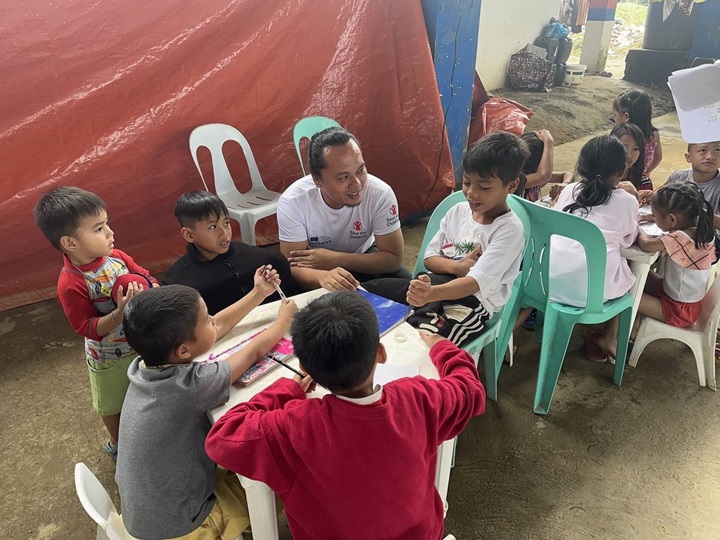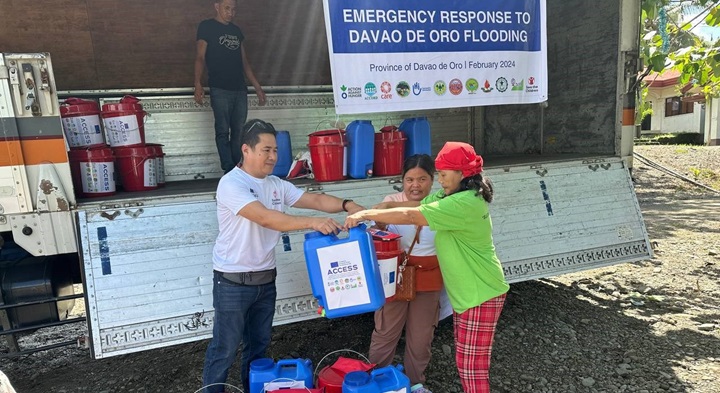
Close to 100,000 families have been displaced in the southern region of Mindanao as rescue efforts continue and concerns over the physical and mental well-being of children rise.
Save the Children Philippines deployed humanitarian response teams over the weekend to distribute children’s hygiene kits and other supplies, as well as to assess needs in landslide-affected areas that have impacted more than 1.2 million people, including about 269,0000 children, and left at least 54 people dead.
Torrential rains have battered Davao de Oro province in Mindanao in recent weeks, triggering deadly floods and landslides. Rescue efforts in parts of the region were also hampered by a subsequent 5.2 magnitude earthquake.
The latest, extreme weather has been partly brought on by the climate crisis and El Niño, a natural weather phenomenon that causes fluctuations in sea surface temperatures, rainfall, and atmospheric circulation in the Pacific Ocean, and the phenomenon is expected to last until May this year.
So far, about 1.2 million people have been impacted by the latest floods and landslides, including about 269,000 children, according to the National Disaster Risk Reduction and Management Council, resulting in damage to homes, displacement and a disruption to essential water supplies and health services.
Electricity lines have also been cut and communication networks disrupted in several areas and the floods and landslides have damaged the infrastructure of some 43 schools, according to the Department of Education.
The disruption of water supplies and sanitation services exacerbates the situation, posing risks to public health, particularly in isolated areas of the region.

Save the Children Philippines has begun distributing essential items to affected families and children including children’s hygiene kits.
There are concerns, however, about the physical and mental wellbeing of children at this vulnerable time.
“It is imperative that we act together and work closely with the government to make sure the children and the families are provided the immediate help they need when disaster strikes. Children are the most vulnerable before, during, and after disasters. The multidimensional stress they experience from difficult situations during emergencies and calamities will take a toll on their physical, emotional, and psychological well-being” Save the Children Philippines CEO, Atty. Alberto Muyot said.
A 2023 research concluded that the Philippines is the most vulnerable country in the world to natural disasters. The archipelago has a disaster risk index of 46.86, followed by Indonesia (43.5).
In the Philippines, children born in 2020 would face 4.9 times more heatwaves, 2.3 times more floods, 1.2 times more droughts, and 1.5 times more crop failures than their grandparents or those born 60 years ago.
Save the Children Philippines works hard to give Filipino children a healthy start in life, the opportunity to learn, and protection from harm. We do whatever it takes for and with children to positively transform their lives and the future we share.

